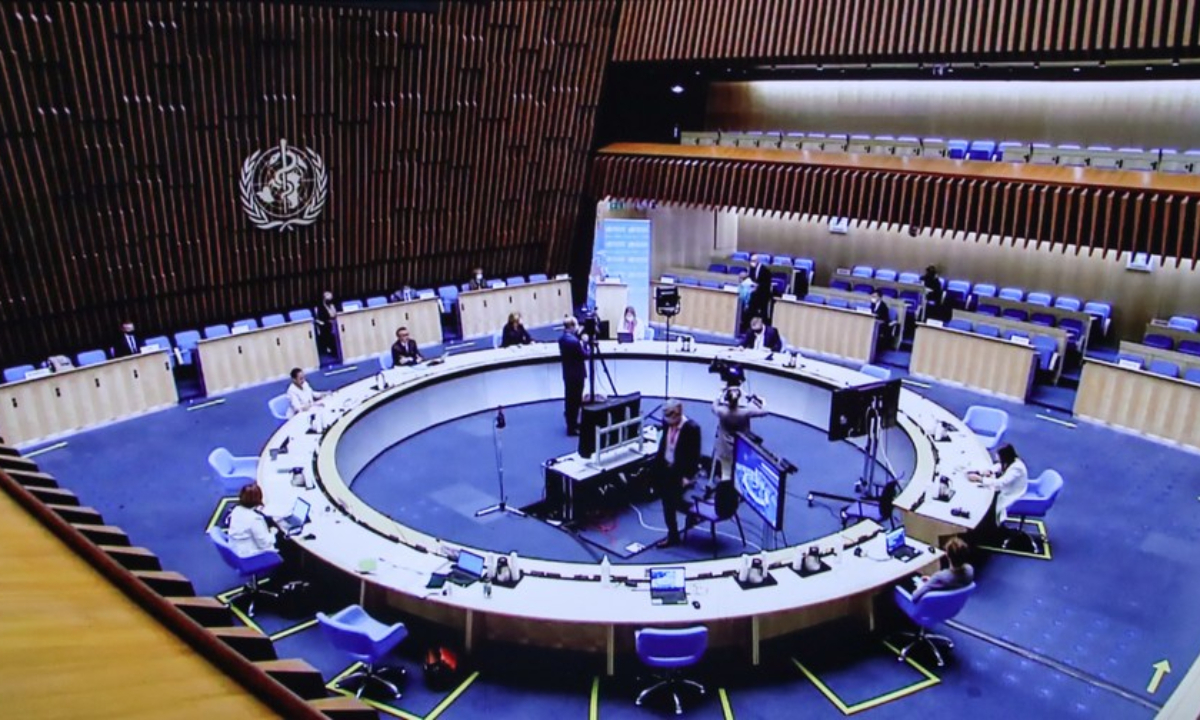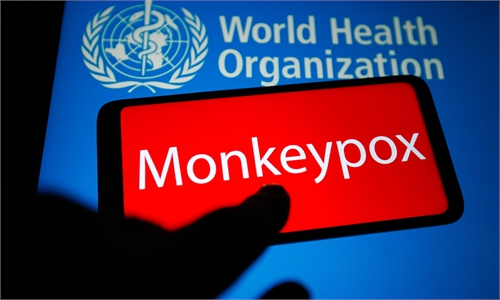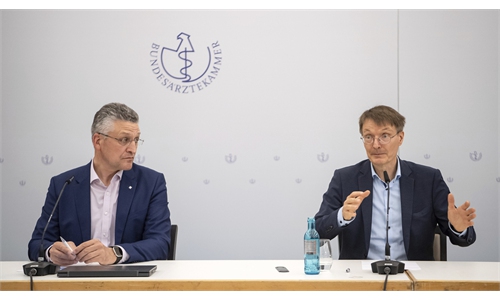WHO drops endemic country distinction for monkeypox in bid to unify response

Photo taken in Brussels, Belgium on May 24, 2021 shows the live stream of the 74th World Health Assembly held at the World Health Organization (WHO) headquarters in Geneva, Switzerland. Photo:Xinhua
The World Health Organization says it has removed the distinction between endemic and non-endemic countries in its data on monkeypox to better unify the response to the virus.Until the past few months, monkeypox had generally been confined to Western and Central Africa but is now present in several continents.
"We are removing the distinction between endemic and non-endemic countries, reporting on countries together where possible, to reflect the unified response that is needed," the organization said in its monkeypox outbreak situation update dated Friday but sent to media on Saturday.
Between January 1 and June 15, 2,103 confirmed cases, a probable case and one death have been reported to the WHO in 42 countries, it said in a statement.
The Geneva-based UN health agency is due on Thursday to hold an emergency meeting to determine whether to classify the global monkeypox outbreak as a public health emergency of international concern.
The designation is the highest alarm the UN agency can sound.
The majority - 84 percent - of confirmed cases are from the European region, followed by the Americas, Africa, Eastern Mediterranean region and Western Pacific region.
WHO believes the actual number of cases is likely higher.
The normal initial symptoms of monkeypox include a high fever, swollen lymph nodes and a blistery chickenpox-like rash.
However, the US Centers for Disease Control and Prevention has said that current cases do not always present flu-like symptoms, and rashes are sometimes limited to certain areas.
AFP


